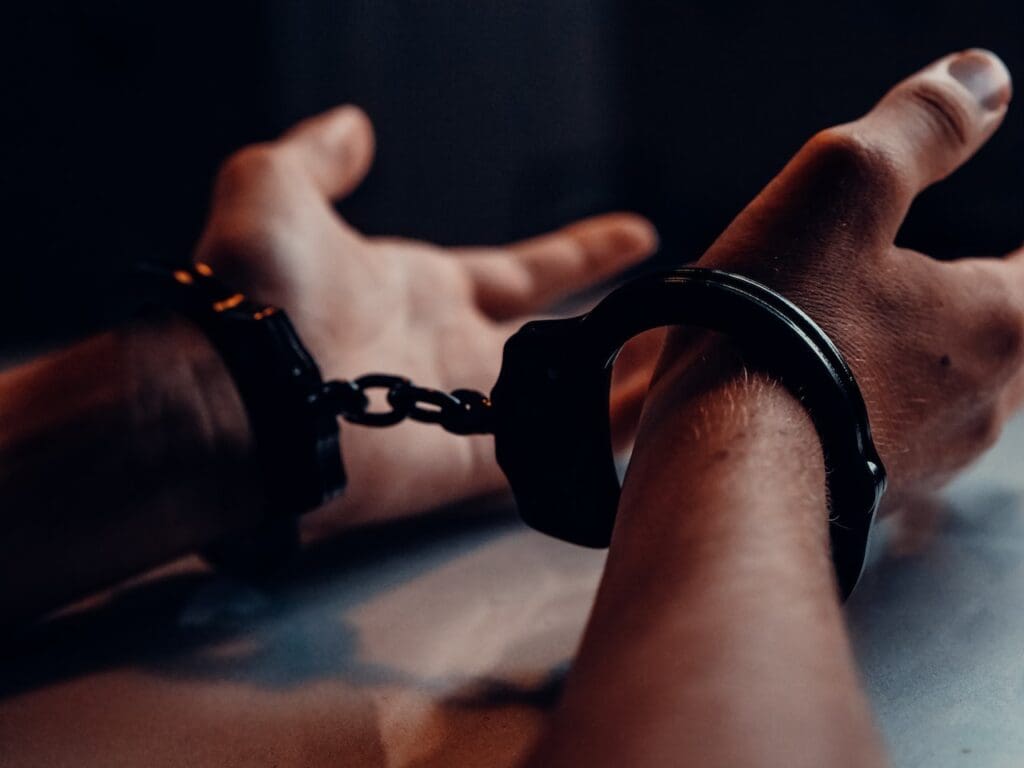- Home
- Larceny Attorney
Your Syracuse
Larceny Attorneys
A larceny charge can have a catastrophic lifetime impact. Cambareri & Brenneck, your criminal defense team, can help.
Message Your Team
Syracuse Larceny Attorneys
Trust former prosecutors to handle your larceny case.

What's the Difference between Petit Larceny and Grand Larceny?
At Cambareri Brenneck, we handle both grand larceny and petit larceny cases. Grand larceny charges are for theft crimes involving property valued at $1000 or more, while petit larceny charges are for theft crimes involving property valued below $1000, including shoplifting cases, which usually fall under this category.
While petit larceny is less severe than grand larceny, it still carries significant consequences. In New York, it is considered a class A misdemeanor
Explore your legal options with an experienced and knowledgeable former prosecutor before a plea deal is entered. We take all situations into consideration to get you the best results.
How are Larceny Charges Defended?
Cambareri Brenneck excels in defending petit larceny charges, including shoplifting. Factors like case strength, prosecutor’s workload, and effective negotiation impact the outcome. With our skilled attorneys, we analyze evidence, build a strong defense, and negotiate for your best result.
At Cambareri & Brenneck we
regularly examine whether or not:
There have been civil rights violations against our client.
The police violated search and seizure laws.
There are police misconduct issues.
There are pieces of evidence that should be suppressed.
There have been chain-of-evidence issues.
The police violated search and seizure laws.
The prosecutors have overextended with their indictment of the accused.
There are witnesses (or other evidence) that dispute the state's version of events.
What are the Penalties?
Larceny carries significant penalties. The severity of the punishment depends on factors such as the value of the stolen property and the specific jurisdiction’s laws. Generally, larceny can result in fines, imprisonment, or a combination of both. The length of imprisonment and the amount of fines imposed vary based on the circumstances of the offense. Additionally, larceny convictions can have long-lasting consequences, including difficulties with employment, housing, and credit opportunities.
When it is appropriate, Cambareri & Brenneck will advocate for our clients’ eligibility for these programs. For more information on the allegations against you, the possible penalties, and what our team is prepared to do to secure the most favorable outcome possible, call our offices today.
Larceny Penalties
Jail Time
Probation
Significant Fines & Penalties
Restitution
Asset Forfeiture

Understanding Larceny in Syracuse
The most common larceny charges:
Shoplifting
The act of stealing merchandise from a retail store without paying for it.
- Bank fraud
- Credit card fraud
- Embezzlement
- Identity theft
- Health care fraud (Medicare/Medicaid fraud)
- Insurance fraud
- Money laundering
- Mortgage fraud/real estate fraud
- Securities fraud
- Tax fraud
- Mail fraud/wire fraud
A conviction for white-collar crimes can lead to severe consequences, including imprisonment, substantial fines, home detention, community confinement, and the payment of prosecution costs. Our firm is dedicated to providing expert legal representation for victims of white-collar crimes, ensuring their rights are protected and pursuing the best possible outcome.
Theft from a Person
Taking someone’s property directly from their person, such as pickpocketing or purse snatching.
- Drug manufacturing
- Drug trafficking
- Continuing criminal enterprise crimes
- Conspiracy to manufacture, distribute, or import illegal drugs
- Distributing illicit drugs in prohibited locations or to individuals under 21 years old
- Simple possession of controlled substances without a valid prescription
- Investing drug profits from illegal drug sales in interstate businesses
Our firm is dedicated to providing comprehensive legal representation for individuals facing federal drug crime charges. We work tirelessly to protect our clients’ rights and pursue the most favorable outcomes.
For a second-time DWI offense within 10 years in New York, it is considered a Class E felony, which could result in fines ranging from $1,000 to $5,000, a jail sentence of up to 4 years, and a minimum one-year license revocation. The defendant may also be required to install an ignition interlock device in any vehicle they own or operate.
Additionally, having prior convictions can negatively affect the defendant’s standing in the eyes of the court and potentially limit their available defense strategies. For example, it might be more difficult to negotiate plea deals or qualify for diversion programs or other leniencies.
Theft from a Vehicle
Stealing items from a parked or unattended vehicle, often by breaking into it.
- Felony firearm possession
- Carrying or using a firearm during a violent crime
- False statements regarding firearm purchases
- Offenses involving stolen firearms
- Possession and sale of firearms with altered or removed serial numbers
- Unlawful possession or transfer of machine guns
We are dedicated to providing strategic legal representation, protecting our clients’ rights, and working towards the best possible outcomes.
Burglary
Illegally entering a building, residence, or structure with the intention to commit theft or another crime.
Petit Larceny
The theft of property valued below a certain threshold, typically set by law, which is considered a less severe form of larceny.
Grand Larceny
The theft of property with a value exceeding a certain threshold, typically set by law, which is considered a more serious form of larceny.











